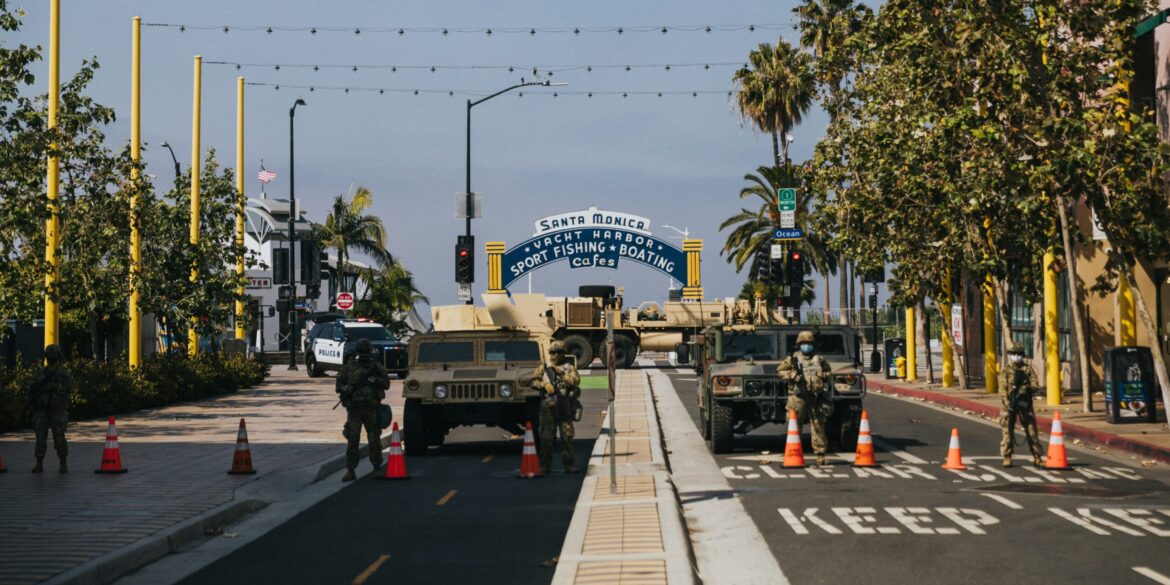On June 8, 2025, President Donald Trump authorized the deployment of 2,000 National Guard troops to Los Angeles in response to escalating protests against recent Immigration and Customs Enforcement (ICE) raids. This decision marks the first federal deployment of this scale without a state governor’s request in over six decades. The move has ignited a political firestorm, drawing sharp criticism from California officials and civil liberties advocates.
Escalating Protests and Federal Response
The protests began on June 6, following a series of ICE operations across Los Angeles that resulted in the detention of at least 44 individuals. Demonstrations quickly spread to neighborhoods such as Paramount and Compton, where clashes between protesters and law enforcement escalated. Authorities employed tear gas and pepper spray to disperse crowds, leading to multiple injuries and arrests. The unrest prompted President Trump to invoke a rarely used provision of Title 10 of the U.S. Code, allowing federal intervention without state consent in cases of rebellion or insurrection.
Political Backlash and Legal Concerns
California Governor Gavin Newsom condemned the federal intervention as “purposefully inflammatory,” arguing that the situation did not warrant military involvement and that state and local authorities were managing the protests effectively. Los Angeles Mayor Karen Bass echoed these sentiments, expressing disappointment in the decision and emphasizing that the city was not experiencing uncontrollable unrest. Legal experts have raised concerns about the precedent set by bypassing state authority, warning of potential infringements on civil liberties and the militarization of civilian law enforcement.
Federal Justification and Ongoing Tensions
The Trump administration defended the deployment, citing threats to public safety and attacks on federal officers as justification. Homeland Security Secretary Kristi Noem criticized Governor Newsom’s handling of the situation, attributing the violence to his perceived inaction. Defense Secretary Pete Hegseth indicated that active-duty Marines at nearby Camp Pendleton were on high alert and could be mobilized if necessary. President Trump, addressing the situation on his social media platform, labeled the protests as “violent” and vowed to take further action if needed.
Community Impact and Future Implications
The deployment has intensified tensions between federal and state authorities, raising questions about the balance of power and the appropriate use of military force in domestic affairs. Community leaders and residents have expressed concern over the psychological toll of the heavy-handed response and the potential erosion of public trust in law enforcement. As the situation continues to evolve, the long-term implications for federal-state relations and civil liberties remain uncertain.

